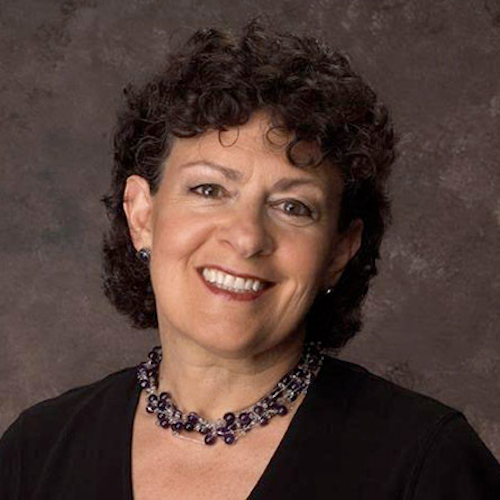Playful Learning
Why We Need Playful Learning More than Ever: Life After Covid
Roberta Michnick Golinkoff, Ph.D.
Unidel H. Rodney Sharp Professor
University of Delaware
June 24, 2021 at 4:30 p.m.
We are at a tipping point in our educational system and in our libraries. No Child Left Behind and Every Student Succeeds has barely made a dent in our continuing poor educational performance. But we can change our mindset; we can emphasize playful learning given the research that shows that children profit from active, engaged, meaningful, and socially interactive learning that they actually enjoy. And, given the increasing prevalence of robots we need to heighten children’s learning of the skills that they will for need for the 21st Century, skills that highlight communication, collaboration, content, critical thinking, creative innovation, and confidence. Thus, using science as a base, I will argue that playful learning offers an important context for a growing child’s academic, social, and physical well-being and that libraries can play a significant role in helping children learn. It is time to embrace the way that playful learning can enhance critical skills both in and out of school and in the library.
About Roberta Michnick Golinkoff
 Ph.D., Cornell University, is Unidel H. Rodney Sharp Professor of Education at the University of Delaware. A member of the Departments of Psychological and Brain Sciences and Linguistics and Cognitive Science, she directs the Child’s Play, Learning, and Development laboratory. Her University awarded her the highest honor a faculty member can receive – recognition as a Francis Alison scholar; she also received the Excellence in Scholarly Community Engagement Award.
Ph.D., Cornell University, is Unidel H. Rodney Sharp Professor of Education at the University of Delaware. A member of the Departments of Psychological and Brain Sciences and Linguistics and Cognitive Science, she directs the Child’s Play, Learning, and Development laboratory. Her University awarded her the highest honor a faculty member can receive – recognition as a Francis Alison scholar; she also received the Excellence in Scholarly Community Engagement Award.
Her work straddles the fields of education and psychology and has garnered many awards. She held a John Simon Guggenheim Fellowship and the James McKeen Cattell sabbatical award. From the American Psychological Association, she won the Distinguished Service Award, was named a Distinguished Scientific Lecturer, and the Urie Bronfenbrenner Award for Lifetime Contribution to Developmental Psychology. Another award for lifetime contributions was the James McKeen Cattell Fellow Award from the Association for Psychological Science. In 2017, she received the Society for Research in Child Development’s Distinguished Scientific Contribution award. The American Educational Research Association gave her both the Outstanding Public Communication of Education Research Award and its prestigious Fellow rank, as did the Cognitive Science Society and APA and APS.
Dr. Golinkoff is known for her research on language development, the benefits of playful learning, the effects of media on children, and early spatial development. She lectures all over world and is passionate about the dissemination of educational and developmental science for the betterment of children and families’ lives. Her main goal is to bring attention to the importance of language development for children’s academic, social, and occupational success. To identify children with language issues between 3 and 6 years of age when remediation is most effective, she created the QUILS: Quick Interactive Language Screener (in English and for Spanish-English bilinguals).
Golinkoff spends much effort informing the public about educational and developmental science through numerous blogs for many outlets including the Brookings Institution and the Child and Family Blog. She serves on the boards of organizations such as Jumpstart and was an associate editor of Child Development. Devoted to teaching dissemination to the next generation, she teaches a doctoral class entitled, “Sharing Learning Science” that attracts students from five different University departments.
Her research has been funded by the National Science Foundation, the National Institutes of Health, the Institute of Education Sciences, and the LEGO Foundation. In addition to over 200 publications, she has authored 16 books and monographs. She also writes books for parents and practitioners: How Babies Talk (1999), the award-winning Einstein Never Used Flash Cards (2004), A Mandate for Playful Learning in Preschool (2009), and Becoming Brilliant (2016), that reached the New York Times best seller list in parenting and education.
Her latest project, Playful Learning Landscapes, brings physical installations to communities to engender the kind of caregiver-child interaction that promotes child well-being. She co-founded the Learning Sciences Exchange (Jacobs Foundation), a program to unite scientists, journalists, policymakers, entertainment experts, and social entrepreneurs to share the science of early learning with the public.


